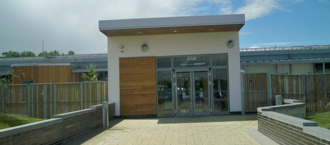LEARNING THROUGH PLAY
February 21 2017
As part of our school improvement plan and our focus on learning and teaching this year, we have provided some information for parents on the importance of play and how this supports a child’s leaning. Read below to find out more about this and how by allowing your child to experience more risky play you can help them to grow into healthy confident individuals. This advice has been adapted from Parentzone Scotland on the Education Scotland website which is a fantastic resource for anyone raising a child in Scotland https://education.gov.scot/ParentZone
The Importance of Play
Play is fun, but it's also how children learn. It makes them more interested in the world, boosts their brainpower and helps them interact happily with other people. So, a little fun and games can give your child a bright future. Play is important for the early stages of brain development and playing with your child can help build relationships for later life. No matter what age we are, play helps to develop important skills for learning, life and work. Encouraging play is one of the best things you can do for your child, whatever their age, and it's free.
Children and young people have a right to play. The UN Convention on the Rights of the Child states (in Article 31) that every child should have:
"The right to rest and leisure, to engage in play and recreational activities appropriate to the age of the child and to participate freely in cultural life and the arts."
United Nations Convention on the Rights of the Child
The Benefits of Play
There is lots of information available about the health and wellbeing benefits of play.
Active play helps to build strong bones and muscles. Children explore their feelings through play, and this can help them build resilience and cope with stress.
Play is how young children make sense of the world. There is also evidence to show that early childhood this can influence the way your child's brain develops, helping to co-ordinate their mental and physical capabilities. Through play, children develop problem-solving skills, imagination and creativity, language and observation skills, and memory and concentration. They use play to test their theories about the world and their place in it.
How can you help?
When you play with your baby or young child it is an important part of the bonding process. How you play with your child when they are young can have a positive impact on how they form relationships when they are older. As your child grows up your role will change. They will need you to take a step back and allow them to play alone and with their friends. This helps to build their confidence and independence. There are lots of different things you can do to encourage your child to play;
• Get the environment right – turn off the TV!
• Encourage play, especially outdoors, remember to allow freedom and choice and allow them to play in all kinds of weather.
• Allow your child to take and manage risks in their play.
• Give your child enough time to finish their play. If you have to stop your child playing, try to give them plenty of warning to allow them to bring their play to a close.
Another great resource for parents is the play talk read website http://playtalkread.scot/
This highlights what parents can do when they simply take the time to chat with their child and build their confidence to express themselves. Even before babies begin to speak, they are listening and learning. So filling their world with chatter and blether gives them the very best start in life.
Reading Together can help your child enjoy a richer, happier life. Snuggling up for a bedtime story is a great way of getting closer, in every sense. It’s so important that any story time with you can have a huge impact on how your child's own story unfolds.
The website goes on to explore plenty more resources which parents can use including;
30 things to do before you're 3.
Together time
Games, stories, songs and healthy foods
Craft ideas / ideas for parties / going indoors and out
Watch parenting videos and keep connected to others while learning how to master one of the hardiest jobs possible – that of raising a child!!



